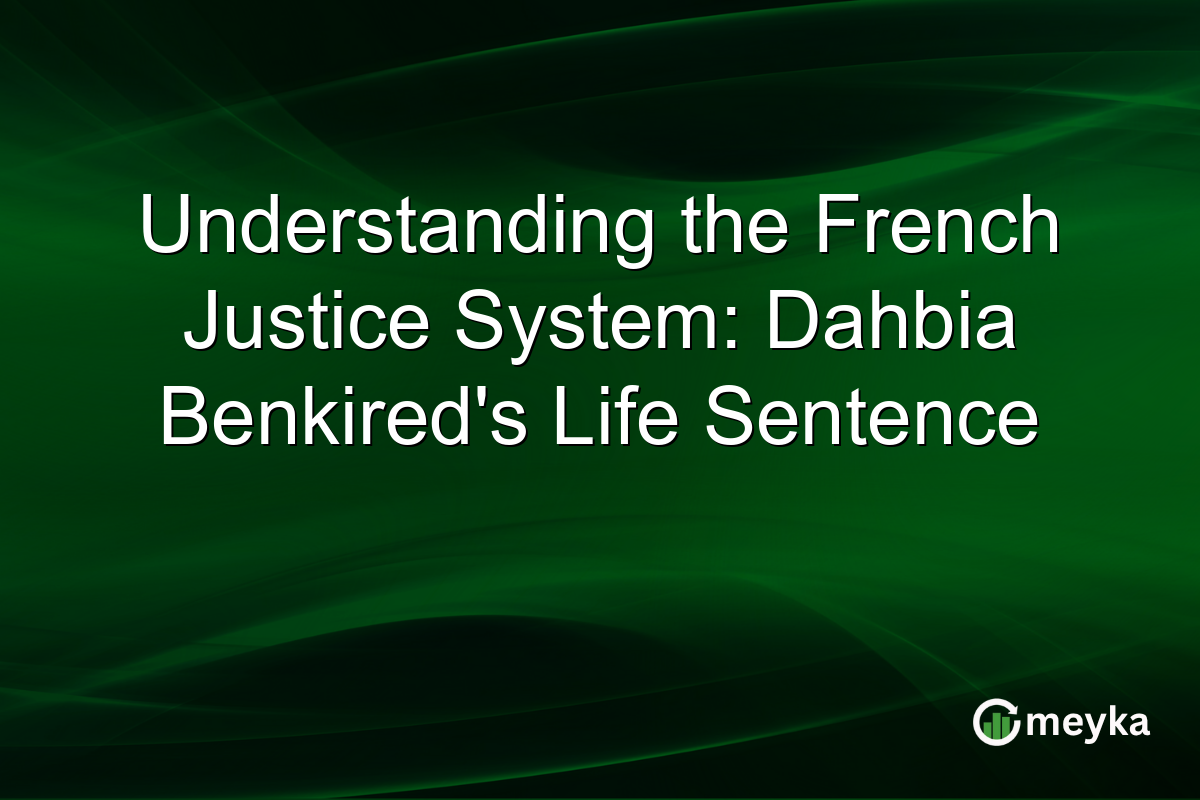Understanding the French Justice System: Dahbia Benkired’s Life Sentence
The French justice system has come under scrutiny following the high-profile case of Dahbia Benkired, who received a life sentence for the murder of Lola Daviet. This case highlights nuances in French court rulings and the broader implications for crime in France. As public interest heightens, understanding the mechanisms of these legal decisions is crucial.
Overview of the French Justice System
The French justice system is characterized by its inquisitorial nature, where judges play an active role in investigations. This differs from the adversarial system seen in countries like the United States. Life sentences in France typically allow for parole after 22 years, but serious crimes often result in sentences without the possibility of parole, as seen in this case. This legal structure has roots in historic values emphasizing rehabilitation alongside punishment.
https://en.wikipedia.org/wiki/Murder_of_Lola_Daviet
Through such a system, France aims to balance justice with human rights, ensuring fairness while protecting society.
The Case Against Dahbia Benkired
Dahbia Benkired’s life sentence stems from the 2022 murder of 12-year-old Lola Daviet, a case that shook France. Benkired, an Algerian citizen, was found guilty of this heinous crime, prompting widespread public and media attention. This verdict aligns with the French justice system’s stance on severe punishments for particularly vicious crimes.
The court aimed to ensure justice for Daviet’s family while delivering a strong message against violent crimes. This case is reflective of how France deals with grievous offenses, balancing judicial thoroughness and societal protection.
Implications for Crime and Punishment in France
This case has reignited debates about crime in France and the adequacy of current legal frameworks. Critics argue for stricter laws to deter future crimes, while others emphasize France’s tradition of valuing rehabilitation. A life sentence in France often indicates the gravity of the crime and the necessity for protecting public safety.
Viewing these rulings provides insights into France’s prioritization of justice: protecting citizens while upholding a rights-focused system. For many, this serves as reassurance that serious crimes will face corresponding penalties.
https://www.facebook.com/RFI.English/posts/a-french-court-has-handed-algerian-citizen-dahbia-benkired-a-life-sentence-witho/1236928378463205/
Final Thoughts
Dahbia Benkired’s life sentence serves as a critical examination of the French justice system. While this ruling underscores France’s tough stance on violent crimes, it also highlights ongoing discussions about legal improvements and societal safety. For citizens, this case reinforces the system’s capability to deliver justice fairly and effectively. Understanding the complexity of such rulings provides valuable perspectives on how France balances justice with human rights.
FAQs
In France, a life sentence usually allows for the possibility of parole after 22 years. However, in severe cases, the court may impose a life sentence without parole, reflecting the crime’s gravity.
Unlike adversarial systems, the French justice system is inquisitorial. Judges actively investigate cases, aiming to determine the truth, which can lead to more thorough and impartial rulings.
The life sentence for Dahbia Benkired indicates France’s stern approach to serious crimes. It emphasizes the balance of punishing offenders while considering public safety and rehabilitation.
Disclaimer:
This is for information only, not financial advice. Always do your research.






